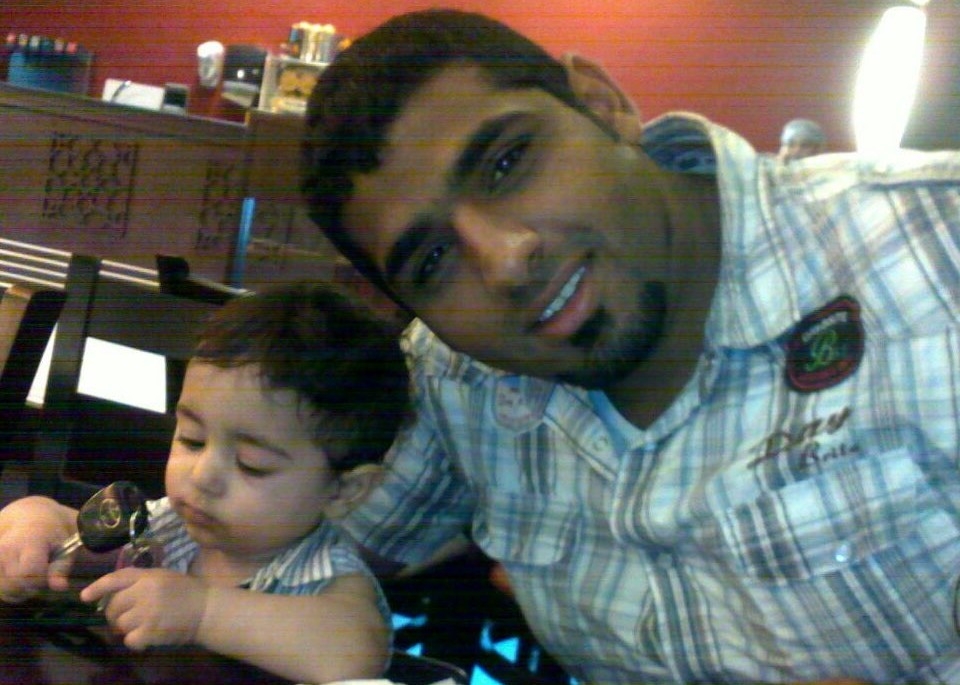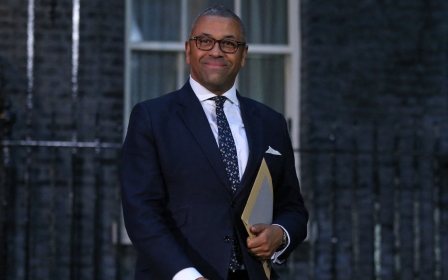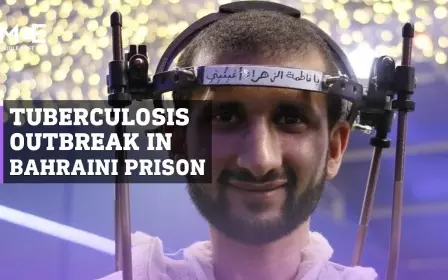Bahrain ignoring death row inmate's pleas for medical care, says wife

The wife of a Bahraini death row inmate who has long maintained his innocence says he has been in "severe pain" for two months, but authorities have ignored his requests to be examined as his condition worsens.
Zainab Ibrahim says her husband, Mohamed Ramadan, has had a lump in his neck for two months which has been causing pain, numbness and swelling, and is impacting the entire left side of his face.
Ramadan has asked authorities in Jau Prison for help on a daily basis and has seen other inmates taken for medical treatment by bus, but has yet to receive an assessment, Ibrahim told Middle East Eye on Friday.
"It's been difficult to sleep these nights," she said. "I ask myself, 'Why must he suffer?'"
'I ask myself, Why must he suffer?'
- Zainab Ibrahim, wife of Mohamed Ramadan
Ramadan, 39, was sentenced to death in 2014 after he and a second man, Husain Moosa, 36, were charged with targeting police officers with a bomb and killing one of them.
Ramadan, the father of three children, had been employed by Bahrain's interior ministry as a police officer at the kingdom's international airport and was his family's sole breadwinner.
He had previously attended peaceful rallies, including one marking the third anniversary of Bahrain's pro-democracy uprising in February 2014, which drew tens of thousands to the streets just days before his arrests.
Their sentences were overturned by Bahrain's Court of Cassation in 2018, when an internal review found evidence that they may have been tortured into confessions, something the two men had repeatedly claimed.
But in 2020, the same court - the kingdom's court of last resort - reinstated the sentences.
UN experts have since called on Bahraini authorities to release the men and investigate whether their rights were violated and, earlier this year, their cases were raised by Lord Ahmad, the UK's minister responsible for human rights, with senior Bahraini officials and human rights bodies.
Middle East Eye understands that the UK's foreign office is monitoring Ramadan's case and has raised its concerns with the Bahraini government.
Continued concerns
Rights groups have previously documented medical neglect across Bahrain's prisons.
Earlier this year, an officer in Jau Prison laughed when inmates pleaded that a fellow political prisoner with tuberculosis (TB) be transferred for care while two others who suspected they had TB struggled to receive timely care.
Sayed Nizar Alwadaei, one of the prisoners who feared he had TB, has since tested negative, but has had ongoing severe neck pain and eczema that has remained untreated, Sayed Ahmed Alwadaei, his brother-in-law and director of advocacy at the UK-based Bahrain Institute for Rights and Democracy, told MEE.
The prisoner was taken earlier this month to a local hospital to have his eyes checked, but Bahraini prison authorities have not allowed his family to deliver the medicine prescribed by the hospital's doctor.
Sayed Ahmed Alwadaei said he finds Ramadan's case, however, particularly concerning and a sign that Bahraini authorities are acting with impunity.
Ibrahim has been tweeting in Arabic and English about her husband's condition since Monday and, on Wednesday, Alwadaei raised the case with Bahraini officials. Meanwhile, he pointed out, the UN Human Rights Council is currently meeting.
"This is what we are dealing with now," Alwadaei said.
MEE did not receive an immediate comment on Friday from the Bahraini Embassy in the UK.
Middle East Eye propose une couverture et une analyse indépendantes et incomparables du Moyen-Orient, de l’Afrique du Nord et d’autres régions du monde. Pour en savoir plus sur la reprise de ce contenu et les frais qui s’appliquent, veuillez remplir ce formulaire [en anglais]. Pour en savoir plus sur MEE, cliquez ici [en anglais].




